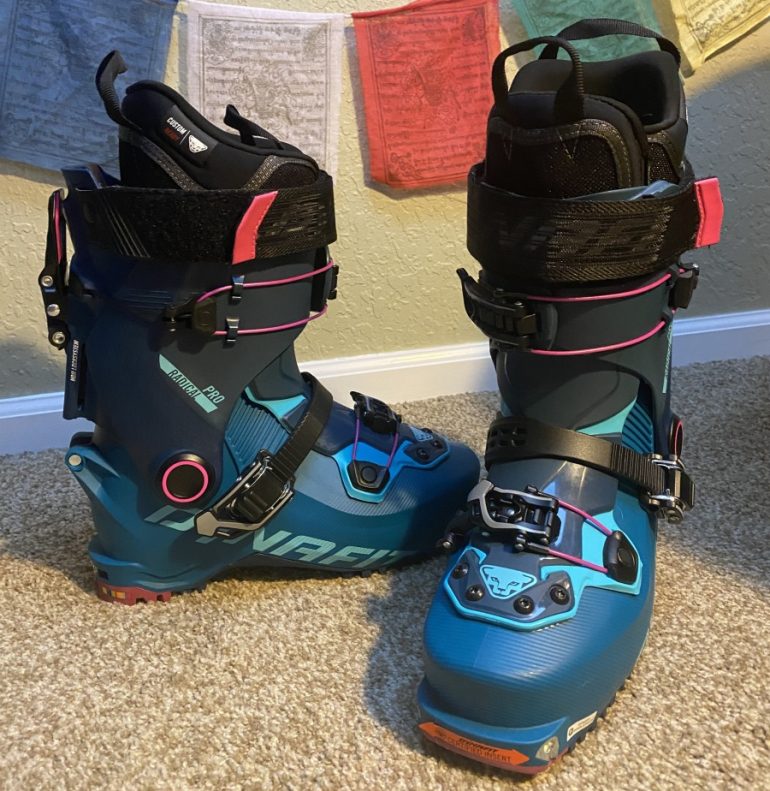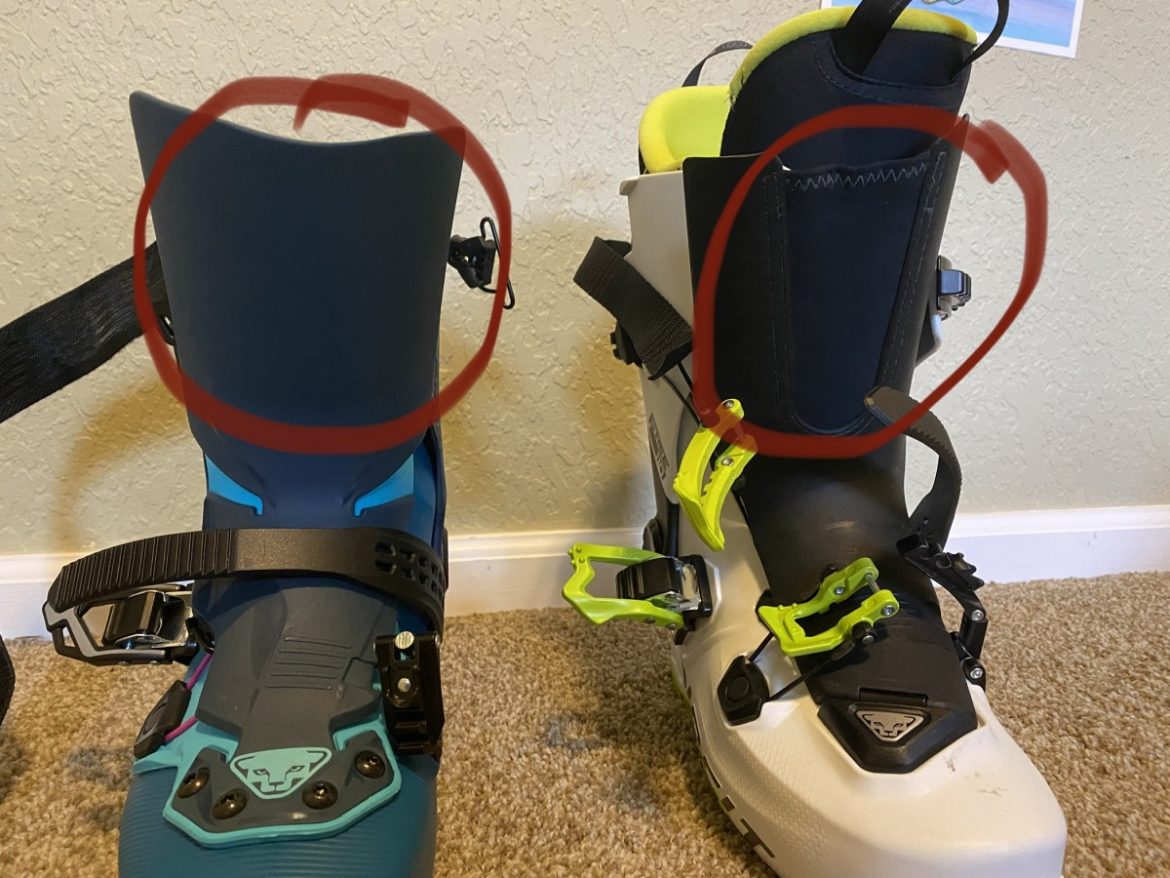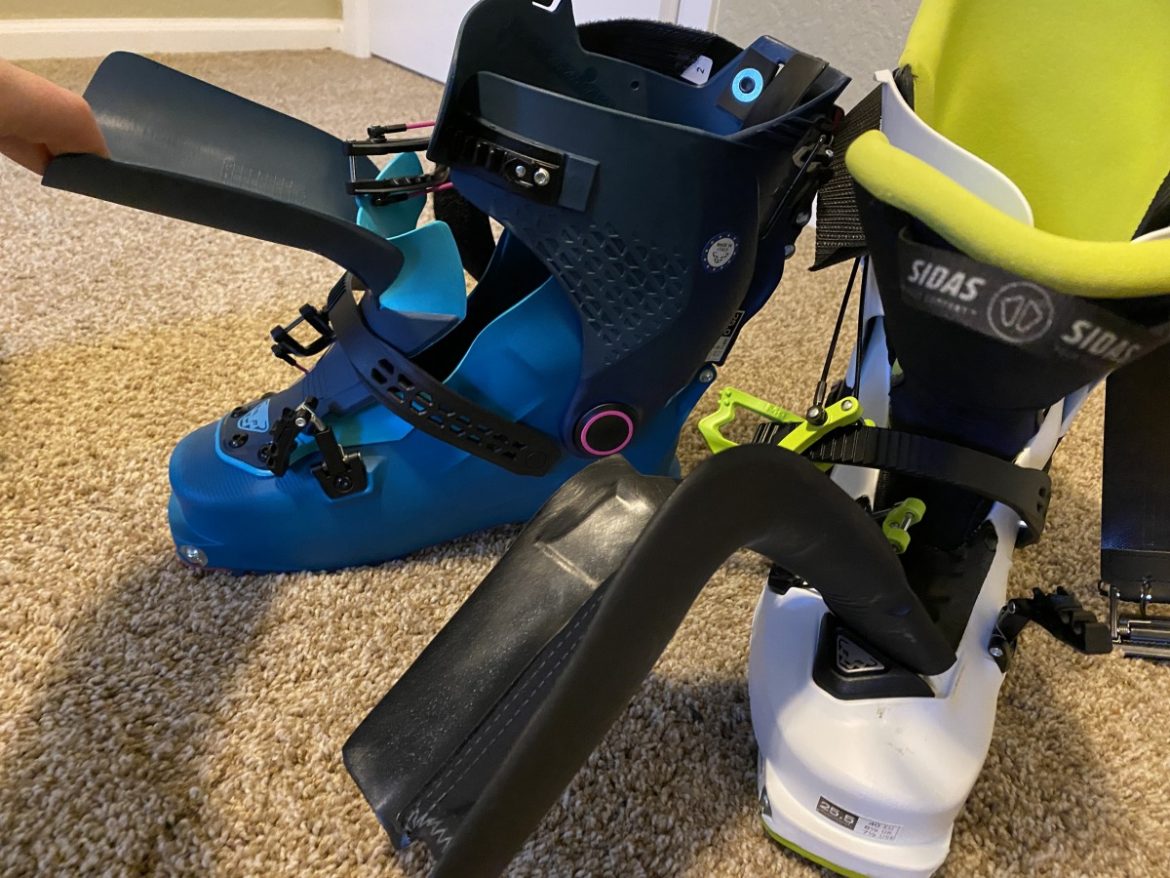
Dynafit markets the Radical Pro as an alpine touring boot catered to downhill-oriented backcountry skiers, or “freeride” as everyone loves to call it these days
My psyche for Dynafit boots continues with the introduction of the Hoji Pro Tour replacement: the Dynafit Radical Pro Boot. Rad fact – Dynafit made a Women’s specific version that is on par with the Men’s, the only differences are color and women specific fit adjustments. Although the Hoji Pro tour earned accolades, it came with some debatable design features, most notably the speed nose, a feature that Dynafit has removed on this boot. There’s no need to update your quiver, the Radical Pro comes with a traditional toe lip, allowing for more compatibility with all bindings and crampons.
Dynafit markets the Radical Pro as an alpine touring boot catered to downhill-oriented backcountry skiers, or “freeride” as everyone loves to call it these days. I eat the term up because it makes me feel cooler than I am.
I have skied on the Hoji Pro Tour for the past three years and have felt the disadvantage of the speed nose. Some challenges are my inability to kick steps in a firmer boot pack, feeling unstable while taking my skis off in icy places, and spending time, as well as money, to build the dream crampon to fit this Cinderella slipper.

All the boots side by side: Hoji Pro Tour, Radical Pro, Hoji Free.
The major change in the Radical Pro from the Hoji boot series is the boots’ tongue system. The Hoji tongue has a V shape, and is built out of plastic and textile, and can be flipped out when the buckles are not engaged. The Radical Pro deviates from this design as it features a hinged tongue that pulls forward and is secured with four screws right above the toe box. Dynafit claims that the Radical tongue brings better power transfer as one flexes into the tongue. The boot is also built so the cuff and the shell are separated to help reduce friction through each stride when skinning, possibly adding even more mobility to the rated 60 degree walking range. I am psyched to see how that plays out on longer tours!
Another small yet major difference that I am a bit bummed about is the power strap. The Radical Pro has a lighter velcro only power strap compared to the cam strap available on the Hoji. The velcro-only strap is a compromise to reduce weight; I may end up buying a cam strap and swapping it out in the future. Speaking of other small weight reductions, the buckles are slightly slimmer than those found on the Hoji Pro Tour, but work the same.
The Radical Pro has a 103.5mm last, wider than the Hoji Free (102mm) but the same as the Hoji Pro Tour. The Radical Pro also has a wider instep, allowing more room around the ankle, making the boot easier to put on. With the new tongue, I found that getting the liner out and back into the boot is a tad more difficult.
Radical Pro is rated stiffer at 120 flex compared to the Hoji Free and Pro Tour 110 flex (Hoji Free also comes in 130 flex, but that boot is not included in comparison at this time) . I haven’t had the chance to ski much in the PNW yet (La Nina, where are you??) but, testing these boots side by side in my living room, I find the Radical Pro is stiffer. More info to come once I can get these babies on some firm icy rain runnels, as I am sure our snowpack will gladly deliver early season.

Side by Side liner, Free on the left, Radical Pro on the right.
The liners in the new Radical Pro as well as Hoji Series are moldable Sidas liners, while the Radical Pro liner is lighter and thinner then ones that come in Free series. As I slid the boot on after heat molding it, I felt a bit more pressure in my arch in the Radical Pro model, but this may be because I haven’t broken them in.
My biggest gripe with the Pro Tour (I know the naming devices are confusing, but this is my old boot,) was the wear and tear on the liner and the shell. Both the Free and Radical Pro appear to have a more burly version of the shell, made with fiberglass-reinforced Grilamid so I am excited to see how they hold up against the PNW backcountry elements: alder, rocks and dirt.
Why do I keep coming back for more? The Hoji Free Lock system, hands down. I love it. The best ski-walk mechanism on the market, Hoji and team killed it.
I view the Radical Pro as a lighter boot compared to the Hoji Free, but one that should ski just as well. I haven’t had the chance to ski on the boot yet – but if I were to pick a one boot quiver for myself based on first look, it would be the Radical Pro since I spend a lot more time walking uphill than I do skiing downhill. If you find yourself needing a boot that you would use more downhill, the Hoji Free may be your pick!
Radical Pro Stats:
Weight: shell – 1176g, liner – 230g (size: 25)
Flex: 120
ROM: 60 degrees
Forward Lean: 11
Material: Grilamid
Sole: Pomoca
Buckles: 2 w/power strap
Binding Compatibility: tech/AT
WildSnow Girl, Julia Dubinina, is a weekend warrior chasing snow in winter and sun in summer. A lover of long tours and steep skin tracks, she explores the Pacific Northwest and beyond. When she is not out adventuring, she is working away at her corporate desk job for a software company to make her next adventure happen.


